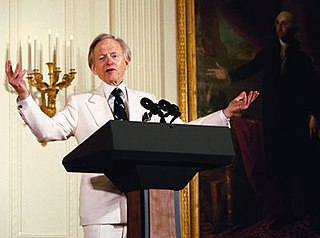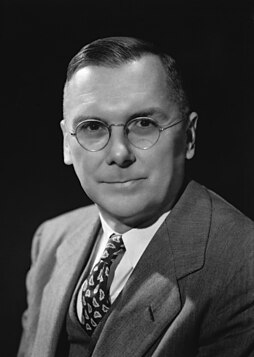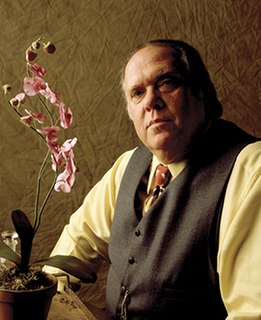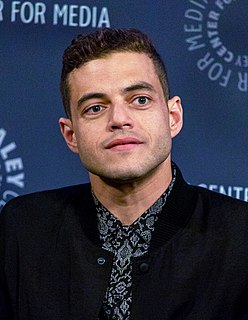
Gene Rodman Wolfe was an American science fiction and fantasy writer. He was noted for his dense, allusive prose as well as the strong influence of his Catholic faith. He was a prolific short-story writer and novelist and won many science fiction and fantasy literary awards.

Thomas Clayton Wolfe was an American novelist of the early twentieth century.
The Academy Award for Best Sound Editing is an Academy Award granted yearly to a film exhibiting the finest or most aesthetic sound design or sound editing. Sound editing is the creation of sound effects. The award is usually received by the Supervising Sound Editors of the film, sometimes accompanied by the Sound Designers.

Thomas Kennerly Wolfe Jr. was an American author and journalist widely known for his association with New Journalism, a style of news writing and journalism developed in the 1960s and 1970s that incorporated literary techniques.
"Mother" Maybelle Carter was an American country musician. She is best known as a member of the historic Carter Family act in the 1920s and 1930s and also as a member of Mother Maybelle and the Carter Sisters.

Susan Howe is an American poet, scholar, essayist and critic, who has been closely associated with the Language poets, among others poetry movements. Her work is often classified as Postmodern because it expands traditional notions of genre. Many of Howe's books are layered with historical, mythical, and other references, often presented in an unorthodox format. Her work contains lyrical echoes of sound, and yet is not pinned down by a consistent metrical pattern or a conventional poetic rhyme scheme.

Roger Wolfe Kahn was an American jazz and popular musician, composer, bandleader and an aviator.
Alex North was an American composer best known for his many film scores, including A Streetcar Named Desire, Viva Zapata!, Spartacus, Cleopatra, and Who's Afraid of Virginia Woolf?. He was the first composer to receive an Honorary Academy Award but never won a competitive Oscar despite fourteen nominations.

Timothy Tarquin Hutton is an American actor and director. He is the youngest recipient in the Best Supporting Actor Category of the Academy Awards. He won at the age of 20 for his performance as Conrad Jarrett in Ordinary People (1980). Hutton has since appeared regularly in feature films and on television, with featured roles in the drama Taps (1981), the spy film The Falcon and the Snowman (1985), and the horror film The Dark Half (1993), among others.

Hugh Latimer Dryden was an American aeronautical scientist and civil servant. He served as NASA Deputy Administrator from August 19, 1958 until his death.

George Costello Wolfe is an American playwright and director of theater and film. He won a Tony Award in 1993 for directing Angels in America: Millennium Approaches and another Tony Award in 1996 for his direction of the musical Bring in 'da Noise/Bring in 'da Funk. He served as Artistic Director of The Public Theatre from 1993 until 2004.

Maury Alan Chaykin was an American-born Canadian actor, best known for his portrayal of detective Nero Wolfe, as well as for his work as a character actor in many films and television programs.
The Gordon E. Sawyer Award is an Honorary Award given by the Academy of Motion Picture Arts and Sciences to "an individual in the motion picture industry whose technological contributions have brought credit to the industry." The award is named in honour of Gordon E. Sawyer, the former Sound Director at Samuel Goldwyn Studio and three-time Academy Award winner who claimed that a listing of past Academy Awards, arranged both chronologically and by category, represents a history of the development of motion pictures. It was first presented at the 54th Academy Awards, in April 1982. The Gordon E. Sawyer Award is voted upon and given by the Scientific and Technical Awards Committee of the Academy.

Look Homeward, Angel: A Story of the Buried Life is a 1929 novel by Thomas Wolfe. It is Wolfe's first novel, and is considered a highly autobiographical American coming-of-age story. The character of Eugene Gant is generally believed to be a depiction of Wolfe himself. The novel covers the span of time from Eugene's birth to the age of 19. The setting is the fictional town and state of Altamont, Catawba, a fictionalization of his home town, Asheville, North Carolina. Playwright Ketti Frings wrote a theatrical adaptation of Wolfe's work in a 1957 play of the same title.
The 19th Academy Awards continued a trend through the late-1940s of the Oscar voters honoring films about contemporary social issues. The Best Years of Our Lives concerns the lives of three returning veterans from three branches of military service as they adjust to life on the home front after World War II.
John G. Frayne was a physicist and sound engineer.
Carlton W. Faulkner was an American sound engineer. He won an Oscar in the category Sound Recording for the film The King and I. He was also nominated for four more Academy Awards, three in the same category and the fourth for Best Effects, Special Effects.
Steve Maslow is an American sound engineer. He won three Academy Awards for Best Sound and has been nominated for four more in the same category. He has worked on more than 200 films since 1978.

Kenneth Henry Wolfe is Professor of Genomic Evolution at University College Dublin (UCD), Ireland.











